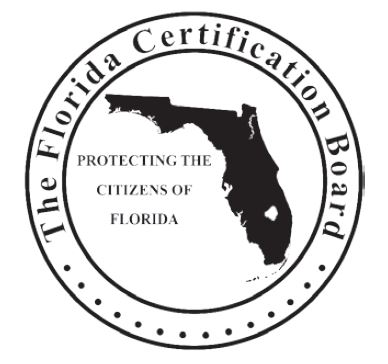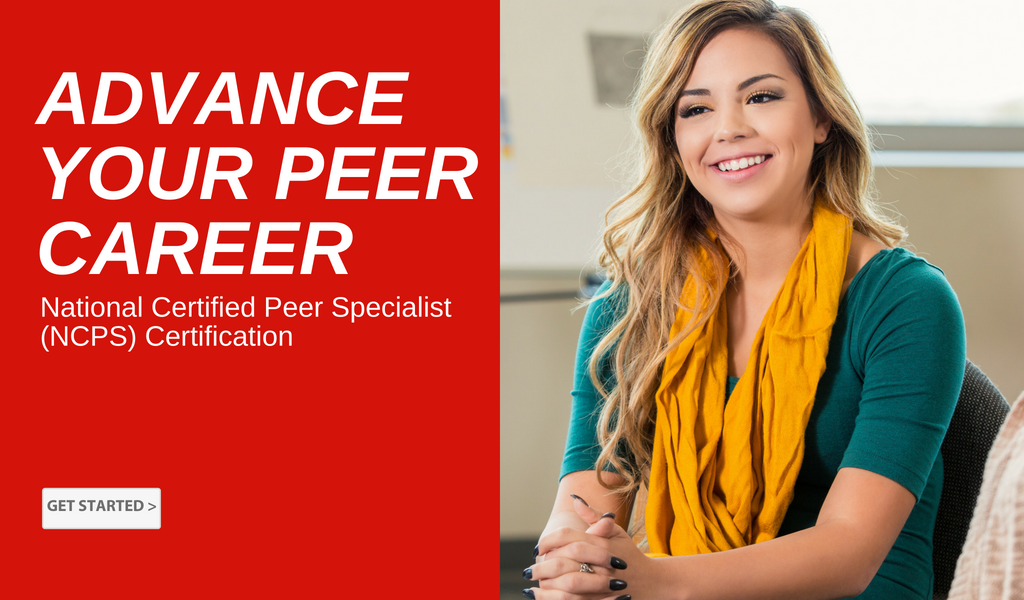You are here
National Certified Peer Specialist (NCPS) Certification-- Get Certified!
Are you looking to make a career in peer support? Discover how earning the National Certified Peer Specialist (NCPS) certification can help you demonstrate your exceptional skills, knowledge, and experience.
Opportunities for peers are on the rise, from inclusion in primary care to stand-alone support to expansion into the private sector. Becoming an NCPS-credentialed peer support specialist demonstrates that you are on the cutting edge of a rapidly growing field. Earning the NCPS shows employers and payers that you have significant knowledge, experience, and skills that set you apart and set you up for a career in peer support.
- Why the NCPS?
- What are the requirements to earn the NCPS certification?
- How do I get started?
- How did MHA create the NCPS?
- More resources
Why the NCPS?
Peer support specialists are in demand across systems and sectors. Despite peer support’s rapid growth and success in improving lives and outcomes, peers support specialists remain underutilized and underpaid and often lack opportunities for career advancement. What’s more, the lack of a uniform, high standard across the US has prevented peer support from expanding to work with commercial health insurance, private health systems, and practitioners. This means many people who want to stay in the field often leave due to a lack of opportunities and living wages.
To address these issues, Mental Health America, in partnership with the Florida Certification Board, created the National Certified Peer Specialist (NCPS) certification, the first national advanced peer support specialist certification. Peer-initiated and operated, the NCPS was developed by a team of peer leaders using the standards from the Substance Abuse and Mental Health Services Administration's Core Competencies for Peer Workers and the International Association of Peer Supporters' National Practice Guidelines. With the contribution of thousands of peer supporters across the US, MHA developed an advanced level standard with 55 core competencies across six domains of practice. It was not designed to replace state certifications or trainings but to build upon them.
Examination topics, including adult learning, activation, private health care, and trauma-informed care, require additional knowledge gained through work experience and training. The additional competencies demonstrate that NCPS peers can meet the demands of a changing workforce and increasing opportunities, all while staying true to the principles, guidelines, and core values of peer support.
Check out our Cheat Sheet comparison between the NCPS and state certification.
Earning the NCPS demonstrates an exceptional level of knowledge and experience to employers and payers and helps peers demonstrate their abilities to work across settings and sectors. It does not replace but enhances state certifications. Peers should always consult certification requirements in their states.
What are the requirements?
To apply for the examination-based certification, individuals must:
- hold current state certification with a minimum of 40 hours of training OR have completed an MHA-approved training
- have a minimum of 3,000 hours of supervised work or volunteer experience providing direct peer support
- provide one professional letter of recommendation for certification
- provide one supervisory letter of recommendation for certification
NCPS Training Partners:
Once approved, applicants take the 125-question, three-hour examination at an approved testing location.
To maintain certification, NCPSs must complete 20 hours of Continuing Education every two years, practice according to the NCPS Code of Ethics, and pay the $200 biennial renewal fee.
How do I get started?
Our career roadmap shows the path from the moment you decide to become a peer specialist to the moment you earn the NCPS certification!
Below are your eight steps to NCPS certification.
- Verify that you meet the NCPS requirements:
- A minimum of 3,000 supervised work or volunteer experience providing direct peer support
- Prior state certification with a minimum of 40 hours training OR completion of an MHA-approved training:
- RI International Peer Employment Training (PET)
- The Institute for Recovery and Community Integration Certified Peer Specialist Training
- DBSA Peer Specialist Training
- Project Return Peer Support Network's Peer Professional Training & Placement Program
- WISE U Peer Support Training Academy
- Appalachian Consulting Group Peer Specialist Core Recovery Curriculum Training
- Intentional Peer Support
- Create an online application through the FCB application portal. For a tutorial on creating a profile in the portal click here.
- Using the Certification Guidelines: Credential Standards and Requirements Table for reference, complete the online application.
- Pay $225 application fee.
- Once approved, your certification specialist will work with you to schedule an examination at a testing location near you.
- Pay $200 examination fee.
- Review your knowledge and prepare for the examination with our National Certified Peer Specialist (NCPS) Self-Assessment Checklist and Test Preparation guide.
- Take the exam. You will receive your results upon completion.
How did MHA create the NCPS?
Mental Health America began working on the MHA National Certified Peer Specialist (NCPS) certification in 2015. In partnership with the Florida Certification Board, MHA convened a group of subject matter experts including Patrick Hendry, Sue Bergeson, Larry Fricks, Tom Lane, Joseph Rogers, Janie Marsh, Andrew Bertagnolli, Andrea Crook, Larry Real, and Brenda Bergeson.
Using the International Association of Peer Supporters (iNAPS) National Practice Guidelines for Peer Supporters and the Substance Abuse and Mental Health Services Administration (SAMHSA) Core Competencies for Peer Workers, the subject matter experts developed a list of core competencies. These were opened for public comment and the feedback of over 1,000 peers determined the 55 core competencies across 6 domains of practice. The competencies were then sent to 10,000 peers to rank the importance and frequency in their work. Based on this feedback a psychometrician from the Florida Certification Board developed a blueprint for the 125-question examination and subject matter experts were trained to develop multiple choice questions for the examination.
Requirements for hours of experience, letters of recommendation, training, and continuing education were determined by subject matter experts after an environment scan of requirements across the states.
For more information, read our White Paper on the development of the NCPS. The Role Delineation Study Report is available here.
More resources:
- NCPS Flyer
- Employer Guide to NCPS Certification
- Letter to Employers on NCPS Certification
- MHA Webinar: Build Your Peer Career: National Advanced Peer Certification
Are you looking to get started as a peer specialist? Check out our How to Become a Peer Support Specialist page.
For questions, please contact Kelly Davis at kdavis@mentalhealthamerica.net.


The NCPS was developed in Partnership with the Florida Certification Board (FCB).









this page